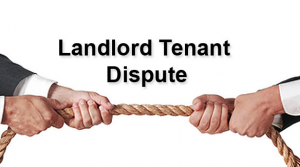
Landlord Tenant Disputes
Landlord Tenant Lawyers Law Firm in Silverlake we advocate for the rights of landlords, property owners, and tenants. For our clients, we bring an experienced depth of knowledge of Real Estate Law, as well as solutions to landlord tenant disputes. Because of our collective experience, we advise our clients how to work through out-of-court negotiations, or, when circumstances require, what to expect in Civil Court so that informed business and financial decisions can be made.
A landlord tenant dispute can occur no matter how much detail was in an original agreement or lease. Many times, eviction notices such as notices to cure or notices of default, notices to quit, notices of termination are necessary to enforce an owner or landlord’s rights. Landlord-tenant laws affect both the person who leases and the person who rents property. Landlord-tenant disputes are governed by state and federal contract and property laws.
Trying to interpret these laws yourself can lead to large, court-imposed fines if you’re the landlord, or to bad marks on your credit report if you’re a tenant. It is always a good idea to hire an experienced real estate attorney to explain your rights and represent you in these matters.Lease and Rental Agreements in Silverlake The typical landlord-tenant dispute revolves around the lease or rental agreement.
The lease usually has: the name or the landlord, the name of tenant, the term of the lease, the amount of rent that must be paid, what happens during “default,” the duties and responsibilities of the landlord, and the requirements of the tenant with regard to maintenance, and what happens at the end of the term of the lease. Some rental and lease agreements and contracts include provisions that explain who must pay attorney fees in a lawsuit, if the tenant can have house guests, the number of persons who may reside in the property, if the tenant can have a pet, and oftentimes what happens if the building is sold during the life of the lease.
Laws Favoring Tenants While leases are sometimes specially written for residential or commercial tenants, state and local laws are applied mainly for residential leases because the tenant is usually deemed not as educated in the law. Landlords may try to add special clauses to a standard lease that are acceptable, but often times landlords insert illegal clauses in their lease agreements because they did not have an attorney assist them. A landlord-tenant attorney will be able to interpret your contract and determine if it follows all applicable laws be you the landlord or the tenant.
Property Maintenance and Repairs Under most common leases, the landlord is responsible for maintenance of the rental property. He must fix any defects or problems. According to local laws, landlords must also deliver a rental property that complies with housing codes, and must maintain compliance with the housing codes. If a landlord doesn’t comply with this responsibility, the tenant must notify the landlord in writing, and give the landlord a reasonable amount of time to fix any situations needing attention.
If no action is taken in a “reasonable amount of time,” the tenant may hire a repairman to make the repairs, pay the repairman, and deduct the cost of the repair from the rent. When the landlord is derelict in his duties to an extreme, he may create a constructive eviction situation. If the defects are bad enough where the tenant can no longer live in the rental property, it creates a situation where the tenant is actually evicted. In order to claim constructive eviction and forgo paying rent, the tenant must inform the landlord in writing, and keep adequate records and pictures should proof be required that the landlord was derelict in his duties.
 If the landlord doesn’t correct the defects in a reasonable amount of time, the tenant can move out.Tenants Faced with an Uninhabitable Unit You should always consult an attorney before taking any such action as moving out based upon repairs not being made. Making mistakes on any notice letters may hurt your chances should your landlord decide to sue you for breach of contract.
If the landlord doesn’t correct the defects in a reasonable amount of time, the tenant can move out.Tenants Faced with an Uninhabitable Unit You should always consult an attorney before taking any such action as moving out based upon repairs not being made. Making mistakes on any notice letters may hurt your chances should your landlord decide to sue you for breach of contract.
A landlord-tenant attorney will be able to help you take the best course of action.Eviction: Fact and Fiction A landlord cannot just show up at a tenant’s door and say: “you are evicted – leave!” In order for a tenant to be evicted, the landlord must go through a specified process, including going to court and proving that the tenant has violated the lease. If the court agrees, a eviction notice will be issued, and the local sheriff or police department will enforce the lease.Landlords – Are Your Rental Agreements in Order? We work with a lot of nice, compassionate and diligent landlords who have a huge financial investment in their real estate and an expectation that their tenants will respect their property.
